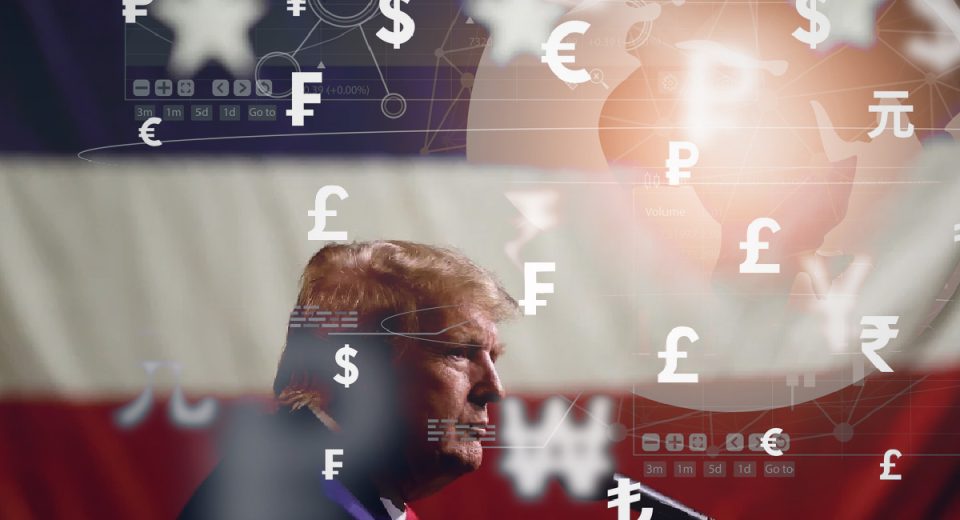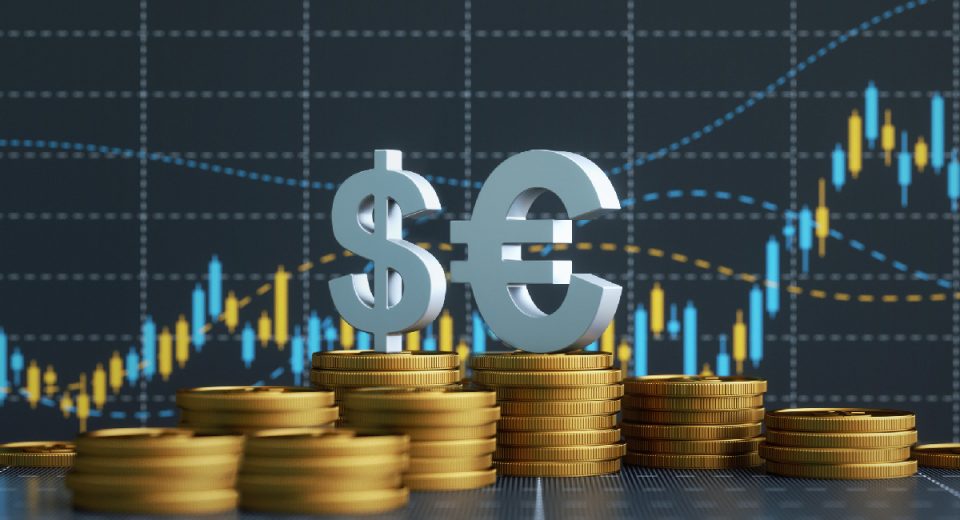How Does Inflation Affect the Global Economy?

The US Department of Labor defines inflation as a “general upward price movement of goods and services in an economy.” In simpler words, inflation makes life more expensive because the prices of goods and services rise. Consumer Price Index (CPI) is the most commonly used measure of inflation. When the inflation rate is low, the economy remains healthy but when the rate rises, especially if this increase is rapid, it tends to lead to decreased purchasing power, rising interest rates and a slowdown in economic growth. On the other hand, small but positive increments in the rate can be useful for an economy. This is why most central banks attempt to maintain the inflation rate at about 2%.
Inflation is usually a result of demand outstripping supply and rising cost of raw materials, which leads to higher prices of goods. Historically, energy commodities, real estate and value stocks have outperformed during times of rising or high inflation while high-priced growth stocks and bonds tend to lag.
Record-high inflation levels ruled the world from 2021 to 2023, leading central banks worldwide to take aggressive monetary tightening measures. But why did the central banks move so fast and aggressively to cool inflation? What is the impact of these moves on the global economy? Here’s a look at all these questions and what traders should know about the impact of inflation on their trading strategies.
Not All Inflation is Bad
Inflation means a general rise in prices. A certain level of inflation is necessary to spur economic growth. To understand this, let’s look at deflation. If prices fall over time, consumers postpone purchasing decisions, as goods are expected to become cheaper later. This creates low demand for goods and services, impacts business profitability, and dampens economic growth. This begins a vicious cycle, as lower business profitability results in fewer new hires and low wage growth, which adversely impacts consumer demand. Such a scenario, which was termed as the “paradox of thrift” by British economist John Maynard Keynes, is prevented by the presence of inflation.
Rising prices encourage buyers to make purchases, before goods become more expensive. This triggers more production, as businesses seek to capture the higher demand, which in turn spurring economic growth. Growth stocks, tech-laden indices, currencies of emerging economies, crude oil, and riskier assets like cryptocurrencies tend to outperform during such periods.
What happens when inflation rates are too high? Let’s have a look at this phenomenon.
The Many Ways High Inflation Impacts the Economy
Inflation has a widespread impact on various aspects of the economy, as it impacts the cost of living, taking loans, mortgages, doing business, and even government bond yields.
High inflation pulls the reins on economic growth. This is more so when inflation results from rising food and fuel prices, both of which are necessities. Inflation erodes the value of money. What $100 could buy yesterday, it cannot buy today. This loss of purchasing power dissuades consumers from buying non-essential and big-ticket items. It also discourages people from taking auto loans or securing a mortgage on a home. As purchasing power erodes, so does demand, which impacts corporate sales.
For businesses, high inflation is a double-edged sword. On the one hand, there is lower demand for their goods and services. On the other hand, inflation means rising operating expenses for businesses, as they pay more for raw materials, logistics and overhead costs. This eats into their profitability and triggers layoffs, which in turn impacts demand.
The first half of 2023 saw mass layoffs, by some of the world’s biggest companies, to ease the impact of soaring inflation on their margins. Microsoft, Amazon, Alphabet (Google), Meta Platform (Facebook), Cisco, T-Mobile, Tyson Foods, Anheuser-Busch, BioGen, Binance, Walgreens, Uber, Rolls Royce, JPMorgan Chase, Twitter Disney, Zoom, Dell, PayPal, IBM and Salesforce announced layoffs from January through August 2023.
The only other option for businesses to cover higher operating costs is to raise their prices. This provides some temporary relief, but feeds into inflationary pressures in the economy, making the situation increasingly worse. Soaring inflation can quickly spiral into recession in the global economy.
While investors turn to commodities, risk aversion supports safe-haven assets like US dollar and gold as well as value stocks.
Central Banks to the Rescue
Prolonged elevated inflation rates are tackled by the central banks by reducing the supply of money. They do this by hiking interest rates. Higher rates encourage people to save and invest, rather than spend their money. This reduces money supply in the economy and cools inflation.
This, too, has a dampening effect on the economy. The central banks simply choose the lesser of the two evils – soaring inflation vs high interest rates. The idea is to tame inflation and then gradually reduce interest rates. For instance, the US Federal Reserve raised interest rates through 2022 and most of 2023, taking its benchmark range to a 22-year high of 5.25%-5.5%. The Bank of England, European Central Bank, and several other central banks also announced rate hikes to cool soaring inflation.
Currencies of the countries that raise rates tend to outperform in such a scenario. For instance, the US dollar appreciated more than 12% in 2022, following the most aggressive interest rate hikes by the Federal Reserve. Non-yielding assets like gold and silver may experience a downtrend. Also, value stocks perform better than growth stocks during such periods.
Economic Data to Watch When Trading Inflation
Three key inflation data:
- CPI – Consumer Price Index
- PPI – Producer Price Index
- Core Inflation – Inflation in goods and services, except in food and energy
To Sum Up
- Inflation is a general rise in prices.
- Low levels of inflation are needed to spur economic growth.
- Deflation has an adverse impact on the economy and can lead to recession.
- Inflation impacts many facets of the economy.
- High inflation causes loss of purchasing power and can result in a slowdown in economic growth.
- Central banks tend to hike interest rates to cool inflation, when price rises are too high.
- Interest rate hikes also impact economic growth.
- Three key inflation data to watch are CPI, PPI and core inflation.
Disclaimer:
All data, information and materials are published and provided “as is” solely for informational purposes only, and is not intended nor should be considered, in any way, as investment advice, recommendations, and/or suggestions for performing any actions with financial instruments. The information and opinions presented do not take into account any particular individual’s investment objectives, financial situation or needs, and hence does not constitute as an advice or a recommendation with respect to any investment product. All investors should seek advice from certified financial advisors based on their unique situation before making any investment decisions in accordance to their personal risk appetite. Blackwell Global endeavors to ensure that the information provided is complete and correct, but make no representation as to the actuality, accuracy or completeness of the information. Information, data and opinions may change without notice and Blackwell Global is not obliged to update on the changes. The opinions and views expressed are solely those of the authors and analysts and do not necessarily represent that of Blackwell Global or its management, shareholders, and affiliates. Any projections or views of the market provided may not prove to be accurate. Past performance is not necessarily an indicative of future performance. Blackwell Global assumes no liability for any loss arising directly or indirectly from use of or reliance on such information herein contained. Reproduction of this information, in whole or in part, is not permitted.




